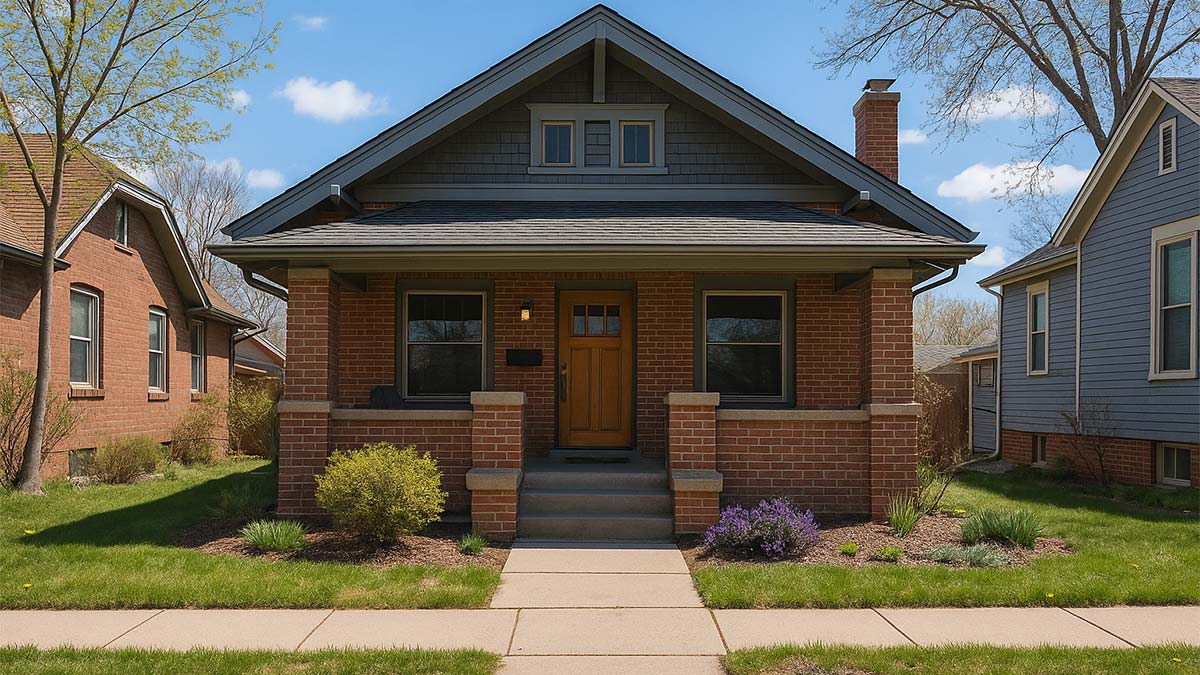Ever scroll past a dream home online only to see it’s already “under contract”? That label can be confusing and frustrating , especially if you were ready to make an offer. But don’t panic. “Under contract” doesn’t always mean the deal is done.
In real estate, timing matters. Understanding what “under contract” means gives you an edge , whether you’re buying or selling. From offers to contingencies to final closing, we’ll walk you through the process so you know exactly where things stand.
And if you’re a seller looking to skip the limbo stage altogether, iBuyer.com can give you a data-backed cash offer, fast. No guesswork. No listings. No delays.
Instant Valuation, Confidential Deals with a Certified iBuyer.com Specialist.
Sell Smart, Sell Fast, Get Sold. No Obligations.
Under Contract Meaning
- What Does Under Contract in Real Estate Mean?
- Under Contract vs. Pending Sale vs. Active Listings
- Key Elements in a Real Estate Sale Agreement
- Can You Still Make an Offer on a Property Under Contract?
- What Causes Real Estate Transactions to Fall Through?
- Reilly’s Two Cents
- What ‘Under Contract’ Really Means in Real Estate
- Frequently Asked Questions
What Does Under Contract in Real Estate Mean?
When a home is “under contract,” it means the buyer and seller have agreed to terms and signed a sale agreement. But the home hasn’t sold yet , it’s just the start of a longer process that includes inspections, financing, and paperwork.
Think of it like putting a house on hold. The buyer has made an offer, the seller accepted it, and both parties are now working to meet the conditions in the contract. These could include things like home inspections, an appraisal, or loan approval.
During this phase, the home is technically off the market , but the deal isn’t final. In some cases, backup offers might still be allowed. This in-between period is part of what’s called a real estate transaction, where everything hinges on mutual consent and meeting all the terms.
Sometimes, this stage also involves placing the home under escrow, where a third party holds funds and documents while conditions are sorted out. It helps keep things fair for everyone involved until the closing date.
Under Contract vs. Pending Sale vs. Active Listings
These real estate terms sound alike but mean different things , and knowing the difference can save you time and stress.
A home that’s active is fully available. No accepted offer yet, so you can view it, make a bid, and compete with other buyers. It’s still in the “for sale” phase.
When it’s listed as under contract, the seller has accepted an offer, but certain steps , like inspections or financing , still need to happen. The home is off the market, but the deal isn’t done yet.
Pending sale means those steps are mostly complete. All contingencies are likely met, and the sale is just waiting to close. It’s closer to the finish line than “under contract.”
Here’s a quick comparison to keep things straight:
| Listing Status | What It Means | Can You Make an Offer? |
| Active | No offer accepted yet. Home is still for sale. | ✅ Yes |
| Under Contract | Offer accepted. Some steps (like contingencies) still pending. | ⚠️ Sometimes |
| Pending Sale | All major steps are done. Waiting for final closing. | ❌ Rarely |
Key Elements in a Real Estate Sale Agreement
Once an offer is accepted, both sides sign a sale agreement , a legally binding document that outlines everything from timelines to deal-breakers. It’s the backbone of the real estate transaction.
The agreement usually starts with offer acceptance: the price, closing date, and any included items like appliances or furniture. After that, it gets into the fine print , which matters more than most people think.
Common contract elements include:
- Contingencies: These are “if-this-then-that” conditions, like needing to pass a home inspection or get a mortgage approved (conditional approval).
- Earnest money: A deposit from the buyer that shows they’re serious. If they walk away without cause, the seller may keep it.
- Timelines: Everything in real estate runs on the clock , when to complete inspections, finalize the loan, and close the deal.
All of this helps lock in a property reservation while the rest of the deal moves forward. Until the final signatures are in place, the contract stays active , and anything can happen.
Can You Still Make an Offer on a Property Under Contract?
Yes , in many cases, you can still make an offer on a home that’s already under contract. But there’s a catch: your offer becomes a backup offer, not the primary one.
A backup offer only kicks in if the original deal falls through. This can happen if the buyer fails to get financing, backs out during inspections, or misses deadlines. So while it’s a long shot, it’s not a waste of time , especially in tight markets.
From the seller’s side, accepting a backup offer is a smart move. It keeps pressure on the first buyer to follow through and gives the seller a plan B if the deal collapses.
If you’re thinking about it, talk to your agent. They’ll help you navigate the contract negotiation and make sure the offer is strong enough to be considered. A clean, well-priced backup can put you in a great spot.
Remember, though , while the home is under contract, it’s already under a buyer and seller agreement. So until that deal fails, you’re next in line, not next up.
What Causes Real Estate Transactions to Fall Through?
Even after a home is under contract, things can go sideways. The deal isn’t final until the ink dries at closing , and a lot can happen between now and then.
One common reason is financing issues. Maybe the buyer couldn’t secure a loan, or their lender backed out. Without conditional approval, the deal can fall apart quickly.
Another big one is the home inspection. If serious problems turn up , like a bad roof or major plumbing issues , the buyer might walk away or ask the seller to fix things. Not all sellers are willing.
Appraisal problems can also be a deal-breaker. If the home doesn’t appraise for the agreed sale price, lenders won’t fund the full amount. Unless the buyer covers the gap, the deal may die.
Other risks include title issues, delays in closing, or cold feet. In any real estate transaction, both sides need to meet their obligations , or the contract can be canceled.
That’s why having clear timelines, good communication, and a solid agent is key to getting to the finish line.
Reilly’s Two Cents
I’ve helped plenty of sellers get through the excitement , and stress , of going under contract, only to have a deal fall apart before closing. It’s frustrating, especially when you think everything is locked in. But the truth is, nothing in real estate is final until the closing papers are signed.
For sellers, here’s what I always recommend: vet your buyer early. Make sure they’re pre-approved, not just pre-qualified. That small difference can save you a ton of headaches down the road. And if you’re lucky enough to get a backup offer, don’t brush it off , it could end up being your safety net.
Buyers, if you fall in love with a home that’s already under contract, don’t give up. You can still submit a strong backup offer. Keep it simple, clean, and make sure you’re financially ready to move fast if the opportunity comes up.
Real estate moves quickly, and contracts don’t always stick. But with a solid plan , and the right mindset , you can still come out ahead.
What ‘Under Contract’ Really Means in Real Estate
Understanding what “under contract” means in real estate can take the mystery , and stress , out of the buying or selling process. It’s that middle ground where a deal is in motion, but still vulnerable to setbacks like financing issues, inspections, or paperwork delays.
We’ve walked through how this status differs from “pending” or “active,” what’s inside a typical sale agreement, and what can go wrong before closing. Knowing this stuff helps you make smarter decisions, whether you’re submitting a backup offer or managing your expectations as a seller.
And if you’re thinking, “I don’t want to deal with this,” you’re not alone. That’s exactly where iBuyer.com comes in. We offer a data-backed cash offer, let you skip the listings and showings, and give you the power to pick your closing date. It’s fast, fair, and built for sellers who don’t want surprises.
Compare Cash Offers from Top Home Buyers. Delivered by Your Local iBuyer Certified Specialist.
One Expert, Multiple Offers, No Obligation.
Frequently Asked Questions
“Under contract” means the seller has accepted an offer, but certain steps , like inspections or financing , still need to be completed. “Pending” usually means those steps are done and the deal is just waiting to close.
Yes, you can usually submit a backup offer. It won’t replace the current buyer unless that deal falls through, but it keeps you in line if the sale hits a snag.
Most homes stay under contract for 30 to 60 days. It depends on how fast financing, inspections, and other contract requirements are completed.
This means the seller has accepted an offer but is still allowing showings and possibly backup offers. It’s a way to keep options open while the first deal moves forward.
It happens more than you’d think , about 5% to 10% of deals fall apart due to financing issues, failed inspections, or missed deadlines.
Reilly Dzurick is a seasoned real estate agent at Get Land Florida, bringing over six years of industry experience to the vibrant Vero Beach market. She is known for her deep understanding of local real estate trends and her dedication to helping clients find their dream properties. Reilly’s journey in real estate is complemented by her academic background in Public Relations, Advertising, and Applied Communication from the University of North Florida.




